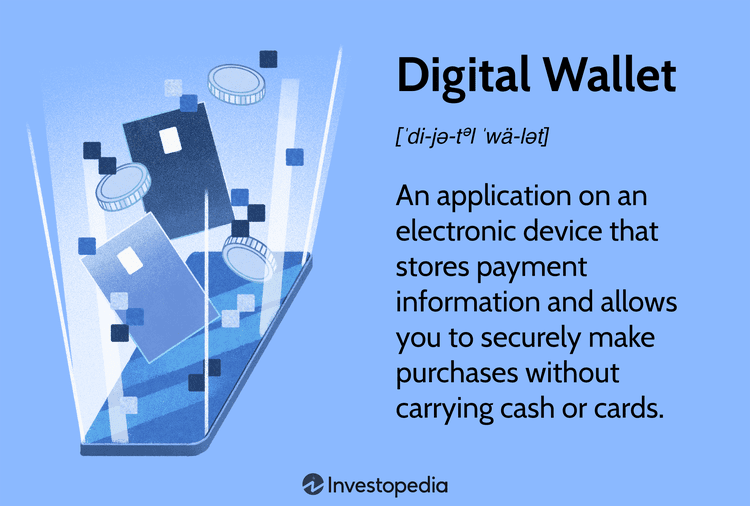In recent years, digital wallets and payment apps have surged in popularity, revolutionizing the way consumers conduct transactions. With the convenience of making payments through smartphones and other devices, these financial tools offer various benefits but also pose potential risks regarding credit scores. Understanding how these technologies interact with credit scoring systems can empower consumers to make informed financial decisions. In this article, we will explore the impact of digital wallets and payment apps on credit scores, their benefits and drawbacks, and best practices for using them effectively.
Table of Contents
Toggle1. The Rise of Digital Wallets and Payment Apps
Digital wallets (such as Apple Pay, Google Pay, and Samsung Pay) and payment apps (like Venmo, Cash App, and PayPal) have changed the landscape of personal finance. These platforms allow users to store payment information securely and make transactions quickly, without the need for physical cash or cards. As their popularity grows, so does the need to understand their implications on credit scores.
2. Impact on Credit Scores
Benefits of Digital Wallets and Payment Apps
- Convenience and Accessibility:
- Digital wallets and payment apps make it easy for consumers to track their spending and manage finances in real time. This convenience can encourage responsible spending habits, as users can see their transactions and account balances immediately.
- Encouragement of Timely Payments:
- Many payment apps allow users to set reminders for bill payments or automate recurring payments. By ensuring that payments are made on time, users can improve their payment history, which is a crucial factor in credit scoring.
- Enhanced Security:
- Digital wallets typically utilize encryption and tokenization, making transactions more secure than traditional card payments. Reduced risk of fraud can lead to less financial stress and better management of one’s credit accounts.
Potential Drawbacks
- Increased Spending and Impulse Purchases:
- The ease of using digital wallets may lead some consumers to overspend or make impulsive purchases, negatively affecting their credit utilization ratio if they rely heavily on credit cards for transactions.
- Limited Credit Reporting:
- Many digital wallets and payment apps do not report transactions to credit bureaus. This means that while using these tools may help consumers manage their cash flow, they do not contribute to building or improving credit scores unless linked to a credit account.
- Risk of Missing Payments:
- If users do not carefully monitor their spending and payment schedules through these apps, they may miss payments on linked credit accounts, potentially leading to late fees and damage to their credit scores.
3. Interaction with Credit Reporting Systems
The integration of digital wallets and payment apps into consumers’ financial lives presents challenges and opportunities for credit reporting systems. Most credit scores are calculated based on credit accounts (e.g., credit cards, loans) rather than cash transactions. As a result, payments made through digital wallets and apps may not have a direct impact on credit scores unless they are associated with a credit account.
- Transaction Tracking: Consumers should be aware that while using digital wallets for cash transactions doesn’t affect credit scores, they can influence financial habits. Keeping spending within limits and ensuring that debts are paid in full will ultimately reflect positively on credit utilization ratios and payment history.
Payment Behavior: Regular use of digital wallets for managing recurring payments can enhance one’s payment history, which constitutes a significant portion of credit scores. However, users should ensure they are paying down any credit accounts linked to these wallets to prevent credit utilization from increasing.
AI-Powered Credit Scoring: The Great Future of Lending and Financial Inclusion in 2025
4. Best Practices for Using Digital Wallets and Payment Apps
To maximize the benefits of digital wallets and payment apps while maintaining or improving credit scores, consider the following best practices:
- Link to Credit Accounts Wisely:
- When linking digital wallets to credit cards, choose those with favorable terms, such as low interest rates and rewards for spending. Make sure to pay off these balances in full each month to maintain a low credit utilization ratio.
- Track Your Spending:
- Regularly monitor transactions made through digital wallets to avoid overspending. Utilize budgeting features within these apps, if available, to set limits on various categories.
- Automate Payments:
- Take advantage of automation for bills and loan payments to ensure timely payments. This practice will help improve your payment history, a crucial factor in credit scoring.
- Regularly Check Credit Reports:
- Use tools and services to monitor your credit report and score regularly. This will help you understand how your financial behaviors are impacting your credit and identify areas for improvement.
- Be Mindful of Inactivity:
- Some digital wallets and payment apps may deactivate accounts after prolonged periods of inactivity. Ensure to make periodic transactions to keep accounts active, especially if they are tied to your credit profile.
5. Conclusion
Digital wallets and payment apps are transforming the way consumers manage their finances, offering convenience and security. However, it is essential to understand how these tools affect credit scores. By adopting responsible usage practices, such as monitoring spending, ensuring timely payments, and maintaining a healthy credit utilization ratio, consumers can leverage these technologies to enhance their credit profiles. As the financial landscape continues to evolve, staying informed and proactive will be crucial for maintaining a healthy credit score and maximizing financial opportunities.
